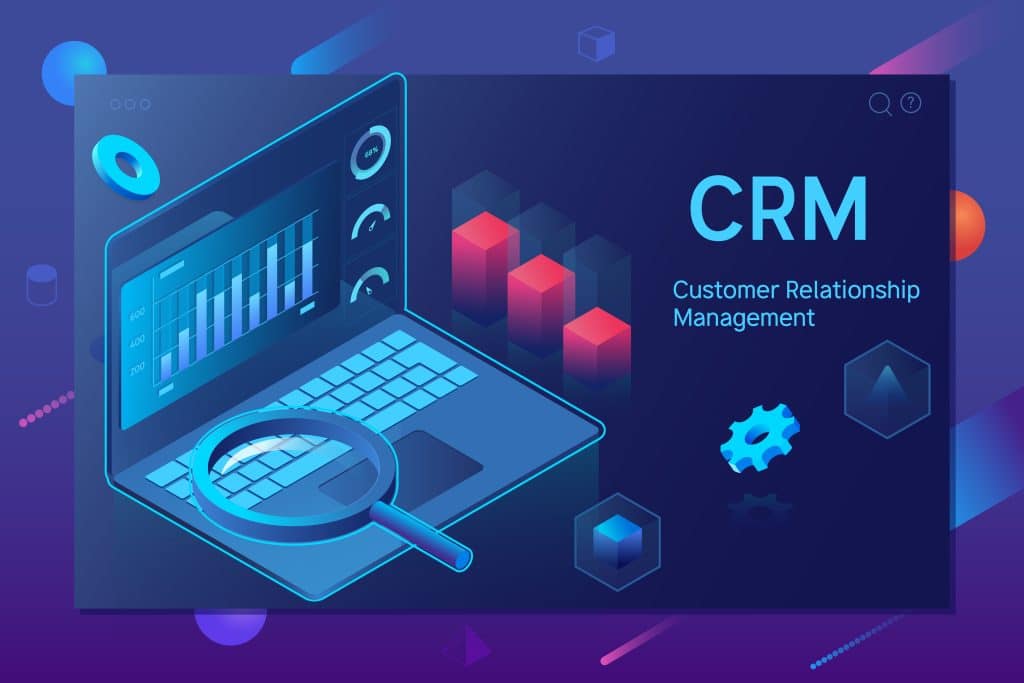113 Most Critical CRM Statistics to Know [2023 Facts and Trends]

Customer Relationship Management (CRM) is still crucial to business success in 2023. CRM delivers exceptional experiences for businesses and customers with AI and Automation, Data Security and Privacy, Customer Analytics, Omnichannel Approach, and Personalized Experiences,
Here you’ll find several facts, statistics, trends, benefits, and challenges of CRM in 2023, giving you a clearer picture of digital marketing innovation. Keep reading to discover them all.

CRM Meaning in a Nutshell
Customer Relationship Management (CRM) refers to businesses’ practices, strategies, and technologies to manage customer interactions and relationships.
It involves collecting and analyzing customer data to improve customer satisfaction, loyalty, and overall business performance.
Benefits of Customer Relationship Management (CRM)

CRM offers many benefits to business growth and development. Here are a few:
Streamlined Sales Processes
CRM systems help you develop suitable sales processes tailored to your business. For example, CRM systems aid sales teams in identifying and focusing on practical activities to close deals faster as they synchronize data, automate sales tasks, and track leads.
Improved Customer Relationship
The best part of Effective CRM systems is that they provide a centralized customer information database. This information pool offers insights that enable businesses to better understand customer needs, purchasing habits, and preferences. That can help you tailor your services and communication to improve customer satisfaction and loyalty.
Increased Collaboration
CRM software fosters effective collaboration between various departments by providing a shared view of customer history and interactions.
Boost Marketing Efforts
CRM helps businesses segment their customers, enabling them to launch high-converting marketing campaigns targeted at specific customer segments.
Enhanced Customer Service
By developing centralized customer data and interaction history, CRM systems assist customer service representatives in seamlessly accessing relevant information and providing timely and personalized support.
Effective Lead Management
CRM software provides a centralized database for a proper follow-up to move leads through the sales pipeline, maximizing lead conversion opportunities.
Challenges of CRM Systems

CRM systems are beneficial to businesses but also pose some challenges. Some of the fundamental difficulties include the following:
High Implementation and Administrative Cost
Implementing a CRM system may be costly, particularly for small and medium-scale businesses. Some of these costs include subscription and licensing fees, integration with existing systems, hardware and infrastructure expenses, and customization.
Moreover, recurring expenses such as maintenance, staff training, and upgrades may increase.
Poor Data Quality and Management
Outdated, inaccurate, or duplicate data may reduce the effectiveness of a CRM system. Maintaining high-quality data and ensuring accurate and relevant information delivery takes constant monitoring, updating, and cleaning.
User Adoption
One of the primary challenges of implementing a CRM system is user adoption, as most employees may find it challenging to adapt effectively to the usage.
The key elements of this challenge include resistance to change, inadequate training, or lack of understanding of the system’s capacity and benefits. These can lead to a low adoption rate, undermining the system’s capacity.
Integration with other systems
Integrating CRM into various software and tools businesses use can be complex, expensive, and require technical expertise and ongoing maintenance.
Customization and Scalability
Every business has a unique requirement and process that may not be catered to by a random CRM solution, raising the need for customization.
But customizing a CRM system to meet specific business requirements may be expensive and time-consuming. Moreso, most businesses require a CRM scaling or upgrade to match their needs as it expands, which may pose a challenge.
Change Management
Implementing a CRM system may disrupt or change business processes or organizational culture. The organization needs employee cooperation, clear communication, and strong leadership to manage the change.
Security and Privacy Concerns
Security is critical in CRM systems since they contain sensitive customer data.
Organizations must therefore implement strong data protection measures, including access control, secure data storage, and encryption to ensure privacy and security of customer data.
In addition, organizations must comply with relevant data protection guidelines such as the GDPR or CCPA.
ROI Measurement
Determining the return on investment of a CRM system can be a hassle because the benefits are often difficult to quantify due to their intangibility.
But, setting clear goals with key performance indicators helps evaluate the system’s effectiveness and justifies the ongoing cost.
Addressing these challenges and implementing the right CRM solution can help businesses harness the full potential of their CRM system and reap the accruing benefits.
CRM Sales Statistics

According to Finance Online reviews, effective CRM implementation can boost sales by 29% and increase sales forecast accuracy by 42%. Data shows that 55% of sales representatives consider CRM’s most crucial feature as its ease of use.
Moreover, CRM systems can increase an organization’s sales productivity by up to 34%. Several businesses have recognized the importance of CRM software. 48% of businesses disclosed that improving their CRM sales funnel is among their top sales priorities 2023.
CRM is rapidly going mainstream among organizations looking to scale their sales. About 69% of organizations said their top market priority is to convert leads into loyal customers.
With the effective implementation of a CRM system, companies can expect a 29% in sales. According to Finance Online, CRM can boost conversion rates by 300%, increasing sales.
Also, overall sales can improve by 87% with CRM systems, according to Finance Online data. 87% of effective sales organizations are more likely to become consistent users of CRM.
Key CRM Statistics
- The customer relationship management (CRM) industry has a value of $65.59 billion as of 2023.
- CRM strengthens the agility of businesses.
- 91% of companies with more than 10 workers use CRM systems.
- 94% of customers would love to patronize the same company that gave them a nice treat.
- On average return, the CRM system refunds (ROI) $8.71 for every dollar spent.
- Microsoft, Oracle, and Salesforce have the most significant shares of the CRM market.
- 92% of businesses say that CRM has helped them achieve their income goals.
- 47% of CRM users say that CRM system has a tremendous and massive impact on customer satisfaction.
- There will be an explosion of CRM in 2023, having achieved 11.6% CAGR from 2022 to 2027.
- It is calculated that by 2028 CRM will develop by 245%.
Customer Relationship Management (CRM) Adoption Statistics

- CRM system has been said to improve quality communication between sales reps and executives by 56.9%.
- CRM revenue will increase by $55 Billion, 393%, between 2010 and 2020.
- 65% of companies adopt CRM within the first 5 years of launch.
- 73% of businesses use cloud-based CRM systems, while 27% use on-premise systems.
- 20% of businesses say user-friendly is very important when buying CRM software.
- Due to a lack of standard customer support from other platforms, 9% of businesses switched to the CRM platform.
- 18% of retailers and 10% of companies use CRM.
- Over the last two years, there has been an increment in the use of AI by digital marketers by 190%.
- Business uses CRM for multi-functions, 46% for marketing, 45% for customer service, and 80% for sales.
- The overall growth of CRM is rising at 12% annually.
CRM Technology and Customer Experience Statistics
- For luxury services, customers are meant to pay a premium price ranging from 13% to 18%.
- 47% of businesses say that CRM software has played an essential role in retaining customers.
- 52% of businesses say CRM could reduce the silos in customer data.
- 81% of businesses increased their digital initiatives after the pandemic.
- 47% of businesses using CRM notice customer satisfaction.
- Customer service revenue accounts for 20% of the total CRM market value.
- CRM influences retaining and satisfaction of customers.
- Using CRM boosts customer loyalty and satisfaction by 50%.
- Companies control about 84% of customers if they tend to have robust data.
- 69% of companies convert their contacts into customers.
Social Customer Relationship Management (CRM) Statistics

- Social CRM boosts productivity by 8%.
- 21% of customers follow their brands on social media.
- 68% of customers use chat rooms or forums.
- The use of social markets increased from 63% to 83% from 2018 to 2020.
- There are up to 2.9 billion Facebook users monthly.
- Social CRM can retain customers by as much as 27%.
- 92% of companies use Twitter daily.
- The gain in productivity related to social CRM functions is 8%.
- The use of social media by firms is more in 2020 than in 2018.
- 76% of clients interact on various channels, depending on the context.
Mobile Customer Relationship Management (CRM) Statistics
- Businesses without mobile CRM meet 22% of sales quotas, while companies with mobile CRM achieve 65%.
- 50% of customers avoid websites that are not mobile-friendly, even if they like the business.
- 34% of the organization in Europe makes use of mobile CRM.
- If a website on mobile is poorly designed, it can stop customers from telling their colleagues.
- Mobile devices bring 52% of internet traffic.
- Sales productivity grows by 14.6% mobile CRM
- 61% of companies believe mobile CRM is now mainstream to connect with customers.
- 54% of customers used mobile devices to browse and buy products on a cyber-Monday 2020.
- 81% of companies use multi-device CRM.
- Half of the sales teams reported that their productivity was strengthened thanks to mobile CRM.
Small Business CRM Statistics
- 33% of small businesses make use of web-based CRM tools.
- 92% of users say CRM is crucial to achieving their sales goals.
- 13% of small businesses have plans to purchase a CRM system.
- Personalized customer service is likely to keep 80% of customers retained.
CRM System Statistics

Using CRM systems can help your company remain productive and effective.
Here are a few key stats to help you understand how valuable this resource may be for your company:
- CRM can increase conversion rates by 300%.
- When used appropriately, a CRM software system’s return on investment (ROI) can reach 245% or more.
- Utilizing a mobile CRM increased productivity for 50% of teams.
- According to Stellaxius, overall CRM usage climbed from 56% in 2018 to 74% in 2019.
- By 2025 CRM is anticipated to generate over $80 billion in sales.
- When social networking and mobile access are included in CRM solutions, sales rep productivity increases by 26.4%.
- Regarding what CRM is, 22% of sales professionals are still unclear.
- According to 74% of businesses, CRM technology improves access to client data.
- 91% of companies with over 11 employees utilize a CRM system (GetBase).
- 94% of consumers prefer to buy from the same vendor they have used in the past.
- In 2023, it is anticipated that revenue in the CRM Software industry will be $79.16 billion.
- Each employee in the CRM Software segment is expected to spend $22.74 in 2023.
- The largest revenue share among all global CRM software providers belongs to Salesforce.com.
- By 2023, the global CRM Software industry is anticipated to generate over $48 billion in sales.
- In 2023, CRM software will bring in the most money ($39.40 million) in the United States.
- According to Gartner, CRM software will account for most of the $686 billion in global enterprise software spending projected in 2023.
- CRM software’s most frequently requested function is contact management, scheduling, and tracking interactions, which are the top 3.
- Customer relationship management may boost revenue by 29% while increasing forecasting accuracy by 32% and productivity by over 40%.
Conclusion
It is crucial to know the data and facts surrounding customer relationship management. Customers are the market’s kings, but your business might lag if no CRM solution exists. A company that invests in CRM technology demonstrates its values for client retention, productivity growth, and improved customer service. Use these CRM data to your advantage to stay ahead of the competition!
FAQs
What are the types of CRM?
How many components does CRM have?
What are the 7 Cs of CRM?

 Our Editorial Process
Our Editorial Process



